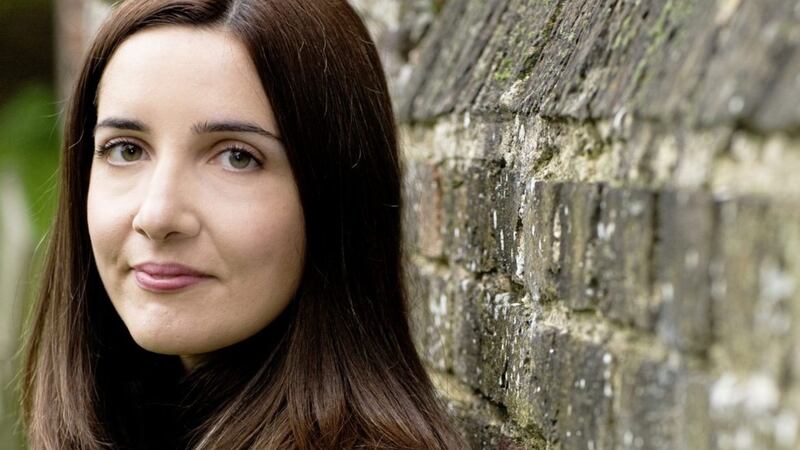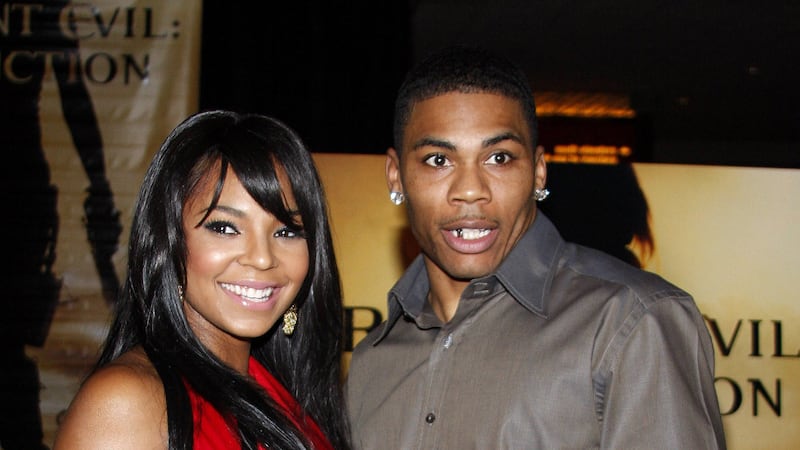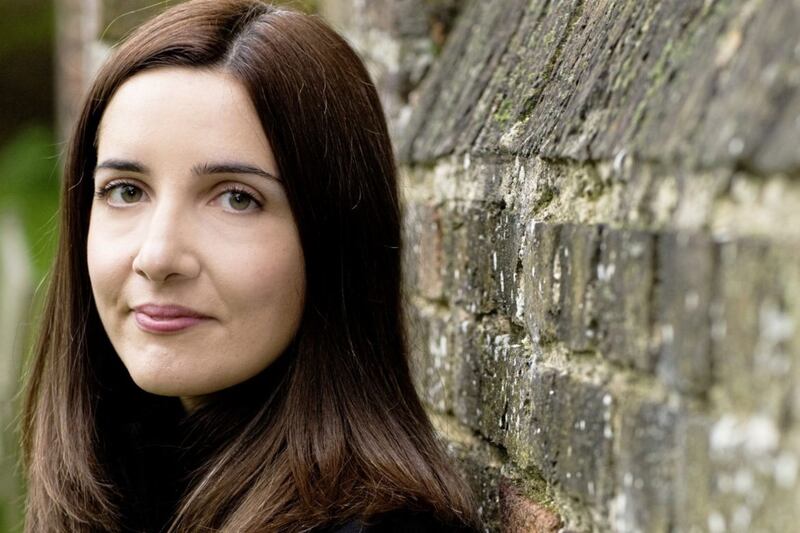FOR an award-winning writer of dark and chilling crime fiction, Jane Casey remains a reliably “calm and cheery” person – although, this, she insists, is a common characteristic among authors in her genre.
“It’s a funny thing and it’s common to so many of us,” muses the Dublin-born creator of London-Irish detective DS Maeve Kerrigan, whose exploits in last year’s Cruel Acts Cruel won her the Irish Independent Crime Fiction Book of the Year Award 2019 (the novel was also long listed for this year's Theakston Old Peculier Crime Novel of the Year award).
“Crime writers tend to be incredibly happy and well-adjusted people and I don’t know why – it must be the way our brains are wired,” she says. “At the same time, I am fascinated by the dark side of humanity and I think it goes back to the first adult books I ever read which were Agatha Christie novels.
“These were very formative for me, revealing how all her characters were questionable in some way. Agatha Christie was very good at making you question whether you could take a person at face value or not.”
With her ninth Maeve Kerrigan thriller – The Cutting Place – on the shelves (and earning rave reviews from peers as well as fans), the Sunday Times best-selling author confides that her popular protagonist has now become something of “an old friend”.
“I think Maeve Kerrigan has struck a chord with readers too because she’s young to be in her role and has all kinds of doubts and fears,” suggests Casey, a mother-of-two based in London with husband, James Norman – conveniently, a criminal barrister whom she credits with providing much of her inspiration.
“Maeve is also very vulnerable, so you’re a bit protective of her, almost, and I think readers can connect with that and also her unwillingness to be pinned down in a relationship. And a lack of trust she has in herself comes from various people I know – including myself.
“There’s also her relationship with Josh Derwent which I think has kept readers engaged. I never actually set out to do the whole ‘will they, won’t they’ kind of thing, as Josh was only ever supposed to be in one book, but he has become a recurring character and I do love a slow burn, myself…”
In fact, Casey’s own account of meeting her husband is more akin to something out of a romantic novel as opposed to crime fiction, judging by her assertion that she intensely disliked the young Mr Norman while they were students together at Oxford.
“I met my husband at university and didn’t like him at all, at first,” recounts Casey, an English graduate from Oxford University who later gained a Master’s Degree in Anglo-Irish literature at Trinity College, Dublin. “We were in the same year, same college, and we kind of clashed for the whole of that first year. I thought he was arrogant – which he’s not at all – so it was very Pride and Prejudice, come to think of it...
“Then, after we had become friends, he fell in love with me and I thought we can’t possibly have a relationship as it would ruin everything, but we did get together and that, as they say, was ‘It’.”
Now, because of her husband’s job, navigating the murky real-life world of murder and manslaughter, there is an ever-ready source of research at the writer’s keyboard-tapping fingertips.
“I do ask him lots of questions and he has made a big contribution to the Maeve Kerrigan series, even though he hates reading fiction and has to practically force himself to read my books,” she says with a cheery laugh. “I have to do my research, but he keeps me on my toes when it comes to things like police procedure.”
In her latest book, Casey’s detective strays into an unfamiliar world of wealth, luxury and privilege when she investigates the murder of young journalist Paige Hargreaves, who had been working on a story about the private Chiron Club in London – before she disappeared.
Exploring #MeToo, toxic masculinity and domestic abuse, the victim in the story is of particular interest for the writer, who before moving to England, had an idea she might like to be a journalist herself.
“I’m not sure if, in another life, I would have been a detective, but I did think about being a journalist and I did a year’s training at the Dublin Institute of Technology when I was about 18,” recalls Casey, a member of Killer Women, a London-based group of crime writers. “At the end of it, though, I realised I was very bad at asking people questions because I don’t like putting them on the spot.
“I thought journalism wouldn’t be so good, if I wasn’t comfortable with that, so I moved into publishing and loved it. I worked on other people’s books for 10 years before attempting my own.”
Her first was The Missing, published in 2010 and subsequently shortlisted for the Ireland AM Crime Novel of the Year at the Irish Book Awards – a prize she eventually claimed in 2015 with After the Fire, the sixth in the DC Kerrigan series.
Also a past winner of the Mary Higgins Clark Award for the 2013 Kerrigan instalment, The Stranger You Know, Casey is, paradoxically modest and proud of all her various awards and nominations, but never takes readers for granted. “There is always this feeling that the next one may not be as good,” she reasons, “and it is always the next book that matters.”
This happens to be her second stand-alone story – and 13th novel for adults – about a young, female barrister, but lockdown has stymied its completion.
“I have about three chapters left to write, but I can’t talk about books and write them at the same time,” she explains. “It is a totally different bit of by brain involved for each, so I have kind of stalled on the writing front to do lots of chatting instead.
“They brought the launch of The Cutting Place forward to the beginning of April because people were reading a lot in lockdown and audio books, especially, seem to have been a real comfort to people. It has been lovely getting little messages from readers who have said they are enjoying listening to my book while doing their baking or gardening or whatever while stuck at home.”
Unfortunately, lockdown also prevented her attendance at the Noireland International Crime Fiction Festival in Belfast in March, as well as visiting her elderly parents in Dublin, but there have been other, creative, side benefits.
“I don’t know if I will ever write a whole book about lockdown, but I think it will come through in funny ways,” she says. “I suspect we’re going to see a lot of novels about desert island experiences and people being locked away in prisons, that kind of thing, because I think we’re all learning what it feels like to be cut off.
“But, I always like to know what the ending is before I write a book – I need to know where I’m going. I can’t set off until I have a map in front of me and, at the moment, we’re in this wilderness, so I’m not ready to write about it all just yet.”
:: The Cutting Place by Jane Casey, published by HarperCollins, is available in book stores and online.



